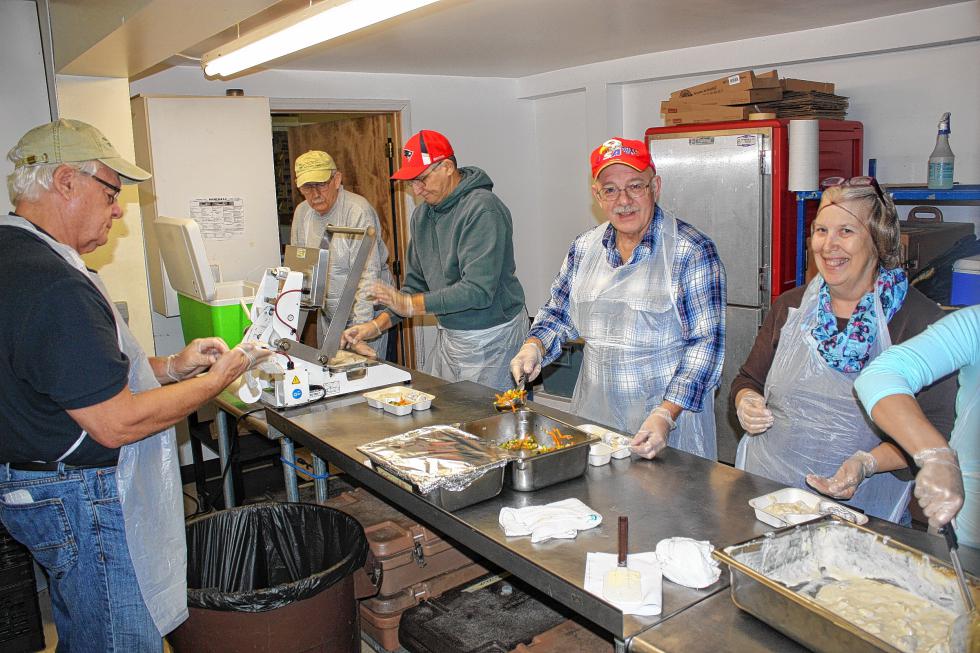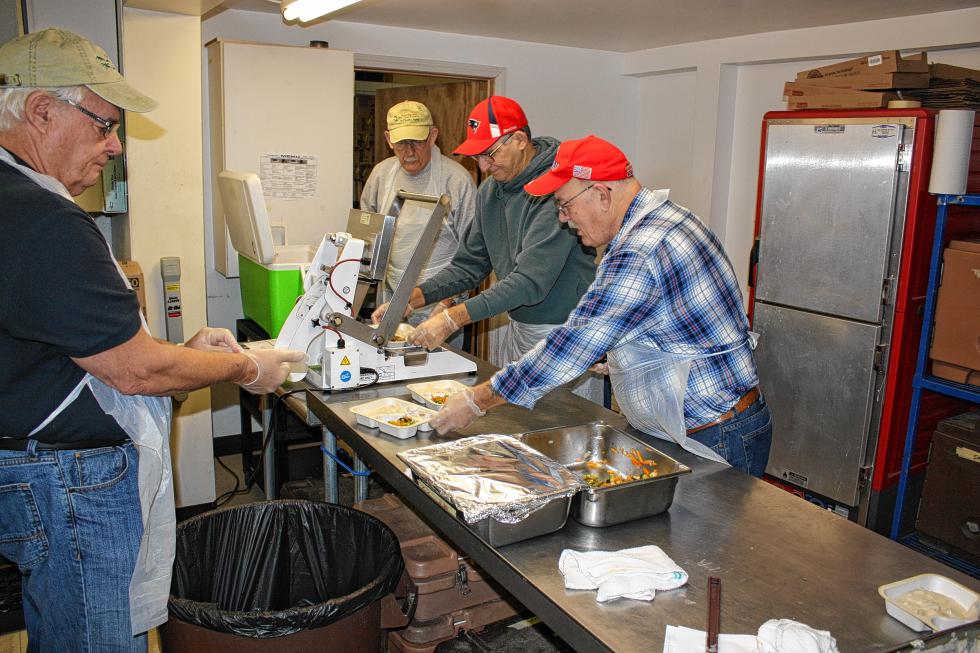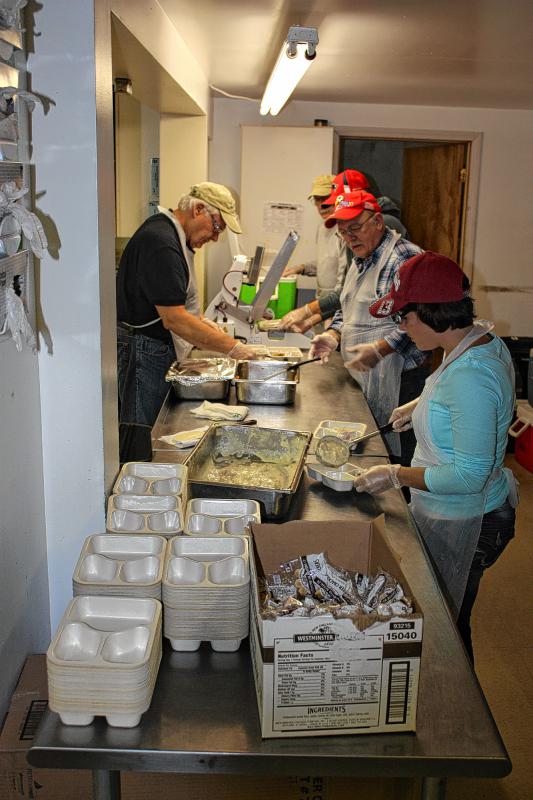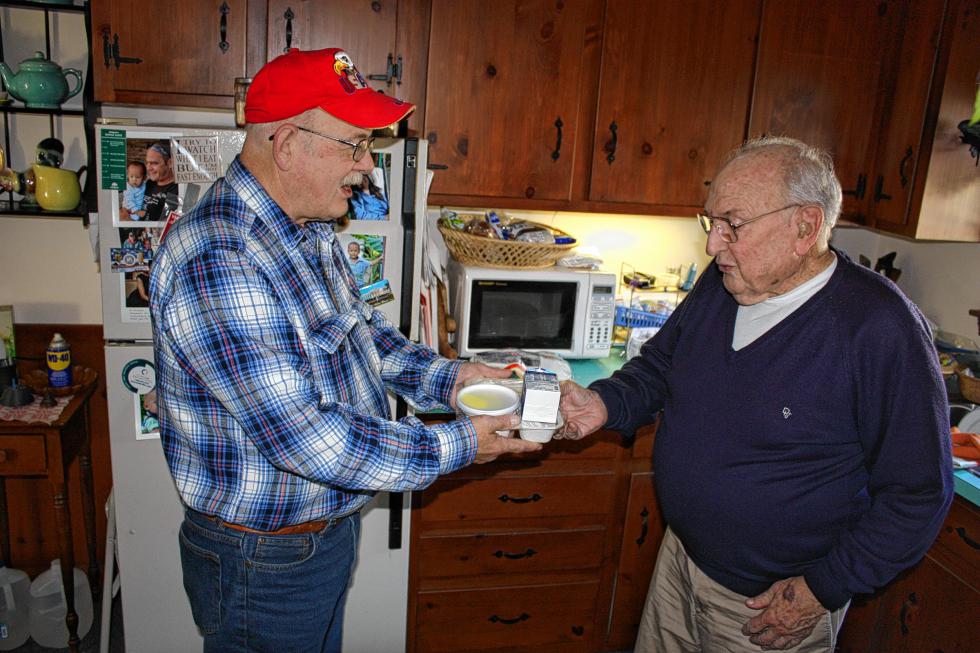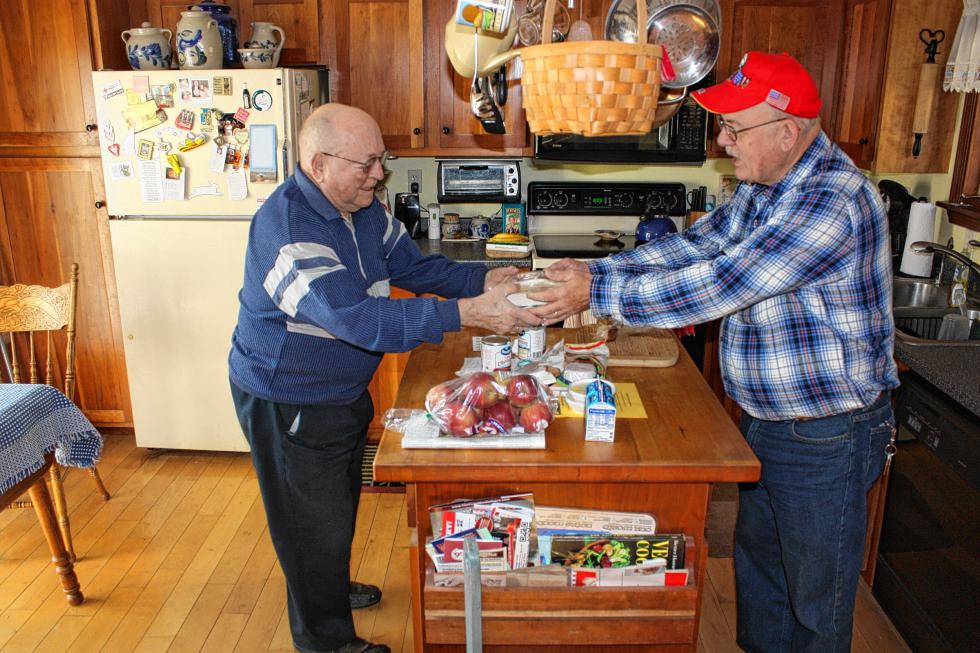Everybody has to eat.
For many people, that’s as easy as running to the grocery store or hitting up the drive-through. But for some seniors, it’s not quite so easy.
That’s where Meals on Wheels comes in.
The program delivers meals up to five times a week to seniors at least 60 years old who need them. A wellness check is also included as part of the delivery, and is considered equally important, said Joan Baretto, assistant director of elder services at the nonprofit Community Action Program Belknap-Merrimack Counties, which handles Meals on Wheels in those counties.
“It’s a combination of meal delivery services, wellness check and resources,” she said. “We deliver newsletters, pamplets, brochures, anything we think that would benefit people on the program that could further use those services.”
Many seniors have a hard time getting meals, whether it’s because they don’t drive or because going out causes too much pain, and there isn’t always a family member or friend close by to help. Meals on Wheels exists to serve those people, and not just through food.
“It’s really not just about the meal,” Baretto said. “It’s about connection.”
Each driver who delivers meals will go into the home to hand-deliver the food, and they’ll make sure everything is okay while they’re there. And that’s an important factor, because sometimes everything is not okay.
“One time I went in and he had fallen and I helped him and called an ambulance,” said Steve Indyk, one of the drivers.
Other times, it’s not a safety thing but more of a social thing. Many people live alone and enjoy the conversation, Indyk said, and the drivers like it too.
And the drivers are more than just drivers and wellness checkers. They also help prepare all the meals. Set up in the kitchen next to the Community Action Program offices, the assembly line works like a well-oiled machine. Some people scoop the entre – it was fish chowder on Friday – while others scoop the vegetables. Then it’s on to the person who seals the tray with plastic using a big press. Then it gets stacked in a cooler before hitting the road.
It’s a pretty efficient process, and it’s pulled off with smiles all around – quite a feat considering about 1,200 meals are prepared in that kitchen every day.
“It’s not just our Meals on Wheels program, but our congregate dining meals are prepared too,” Baretto said. “We do some outreach meals at places seniors gather, and we also do a couple day-cares.”
The Meals on Wheels dishes go out to about 1,500 homes between Belknap and Merrimack counties, including about 350 in Concord, the locale with the most participants. Population tends to drive participation, Baretto said, so it makes sense that Concord and Laconia occupy the top two spots. And the number of participants always fluctuates a little bit from time to time – “it’s fluid,” Baretto said. Last year, the program delivered about 213,000 meals across the two counties.
Providing all those healthy meals – each meal meets one-third of the daily requirement for nutrition – to so many people costs money, and that stuff isn’t always easy to come by. Especially for a nonprofit.
“It’s complicated,” Baretto said. “There’s some federal funding, some state funding. . . . By and large, we need to fundraise.”
There is no cost for the meals, Baretto said, but there is a suggested donation of $2. Though many people do donate, $2 per meal can’t cover all of the costs of the program, which is why fundraising is so important.
The group does a lot of grant writing and working with local groups to find donations, and there are a few fundraisers each year. The Meals on Wheels Walkathon, for example, is always in May, Baretto said. But one way or another, they always find a way to make it work.
“We have not run short on meals, but it’s always a challenge to raise enough money,” she said.
Volunteers also play a big role in the program. Although the drivers are paid, there are also volunteers who work at the program’s centers to help when times are busy.
“The drivers will do a lot of packing, but sometimes we need extra hands and volunteers at the centers will do it,” Baretto said. “Because the program is run out of centers, many hands are involved.”
One set of those hands belong to Indyk, the driver who helped a man who fell in his house. He let me tag along with him last Friday for a couple deliveries to Bow – a town we are now allowed to enter.
The first stop was George Descoteau’s house. He and Indyk have a secret door knock they usually use, but they were hesitant to deploy it with the media around. Understandable, in today’s world. Luckily, he was nice enough to let me in, and he was excited for his chowder and veggies. After some pleasant small talk, Indyk and I hit the road for our next stop.
This was at the Rhodes home, just a few miles up the street. Sandy and Norman Rhodes order meals every day, and they love Meals on Wheels.
“It’s a godsend to us,” Norman said.
Both Rhodeses said they can still drive, but they need to take a lot of prescriptions and it’s easier for them to have the delivery. They just joined the program a few months ago, but they’ve already made a friend in Indyk.
“Steve does a good job for us,” Norman said.
If you or someone you know might be interested in applying for the program, call 225-3295 or go to bm-cap.org for more information.

